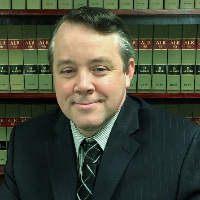 Fyffe DUI-DWI Lawyers, Alabama
Fyffe DUI-DWI Lawyers, Alabama
Sponsored Law Firm
-
 x
x

Click For More Info:
-
Keches Law Group
122 Dean Street Taunton, MA 02780» view mapSocial Security, Personal Injury, Workers Comp. Protecting Your Rights
Our team of experienced personal injury attorneys has over 130 years of combined experience representing individuals and families injured due to the negligence of others.
800-713-8650
Sponsored Lawyers
1-3 of 3 matches
Estate, Divorce & Family Law, Accident & Injury, Criminal, DUI-DWI
Shannon Moore was born in Huntsville, Alabama. He is a graduate of Grissom High School and he received his undergraduate degree from the University of Alabama in Huntsville. He went on to get his juris doctorate from the University of Alabama School of Law. Upon graduation from law school in 1998 he went on to found a law firm with a fellow graduate from law school. He has been in the private practice of law since that time. His practice focuses on criminal law, family law, and personal injury. Over the years, Shannon has represented numerous individuals and has been involved with both bench trials as well as jury trials. In addition, he was the prosecutor for the City of Madison for several years. Shannon is a past president of the Madison County Young Lawyers and he is a member of the Madison County Bar Association, the Alabama Bar Association, and the Alabama Criminal Defense Lawyer's Association. In addition to his legal activities, Shannon is an active member of the local community. He is a lifelong member of Trinity United Methodist Church and has taught Sunday school there. He was a member of the Criminal Justice Advisory Board at Virginia College in Huntsville, Al. He currently is a board member on the South Huntsville Civic Association and a board member of the South Huntsville Library Steering Committee. Shannon Moore has managed several political campaigns over the years and has run for office himself.
(more)


 Sean Flaherty Taunton, MA
Sean Flaherty Taunton, MA AboutKeches Law Group
AboutKeches Law Group Practice AreasExpertise
Practice AreasExpertise

